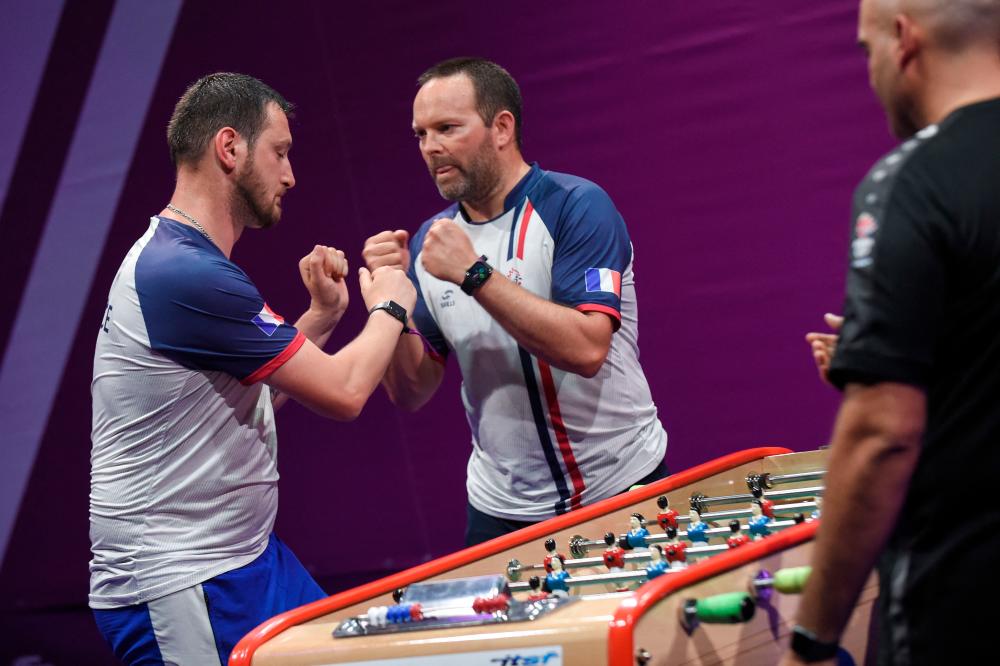NANTES: Dressed in athletic wear and using special hand grips for extra power, more than 1,000 players of table football are taking part in a World Cup this week in western France.
At stake in the six-day competition are bragging rights for the champions, as well as an opportunity for organisers to press for the game to be recognised by more countries worldwide as a sport.
Traditionally played in bars or outdoors, and often accompanied with alcohol, cigarettes and shouting, table football is usually seen as a bit of fun.
But the World Cup in the city of Nantes has brought together the most dedicated fans from around the globe who view it as more than light entertainment between friends.
“It’s a wonderful competition, but it’s not just a race for the medals,“ Farid Lounas, the head of the France-based International Table Soccer Federation, told AFP.
“The main objective is to institutionalise this discipline which brings people together and which, by only needing a table, transcends social class,“ he added.
Many players have flown long distances to be present from countries as diverse as Japan, Iran and the United States.
“We came at our own expense. We have no support, neither from the authorities nor from anyone. We manage as we can,“ said Jules Epotie, 42, a sports manager from Cameroon in West Africa.
China, Iran, Somalia, Switzerland, Armenia and latterly Italy recognise table football as a sport.
But France -- the home of the game, according to one theory on its origins -- has declined several requests to give it sporting status which would open up new funding and facilities.
Livestreamed
Not everyone is bothered, however, with veteran French player Georges Gomes saying he enjoyed the biennial competition mostly as a social event.
“There is absolutely nothing to gain in terms of money, material or anything else. There are only titles,“ he told AFP. “But above all, it’s the pleasure of being present and enjoying a social moment, meeting people from different nations.”
The competition is being played in a cavernous sports hall on an island in the centre of Nantes, where spectators are invited to wander around the tables to watch the games -- because seeing the small ball from the stands is impossible.
Another problem is the huge variation in the rules for playing between and within countries, with the federation authoring a 50-page booklet that serves as the final word in case of disputes.
As all serious players know, spinning the handles is strictly prohibited, making it all about quick wrist speed.
“It’s a beginner’s error if your palm slips at the moment you’re shooting,“ 19-year-old Frenchman Nassim Mahieddine said, displaying his fluorescent yellow grips that he attaches to the table’s handles.
As well as being projected on a giant screen at the venue, games are being livestreamed on the Twitch website, with commentary in three languages.
The final takes place on Sunday.
Table football, sometimes referred to as foosball or baby foot, is played chiefly in western Europe, the United States, Iran and China -- with the US and Germany the powerhouses at the World Cup.
Lucien Rosengart, a French inventor, is sometimes credited with creating the game in the 1930s as a way of entertaining his grandchildren during the winter.
But British and Spanish rivals also lay claim to similar ideas of attaching football players to moveable steel rods. - AFP










